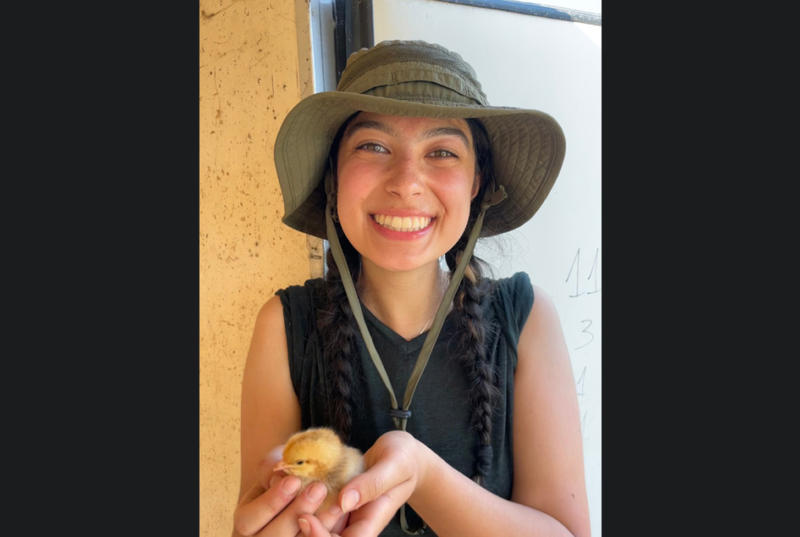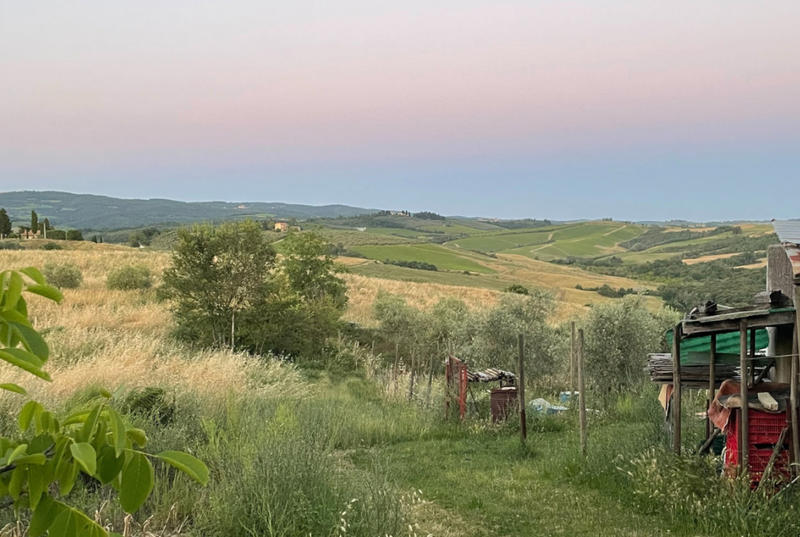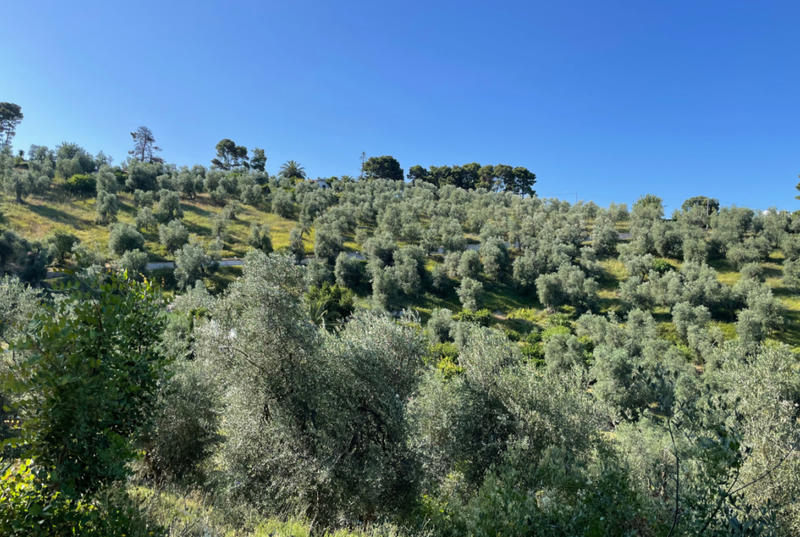Summer Series 2023: WWOOf Italy and Lexington Community Farm

Details
By Callie Rabins ’25
Funding source: Percina Tanasi Fund for Environmental Studies
The organizations that I worked with this summer were three Italian farms associated with WWOOF, or World Wide Opportunities on Organic Farms, as well as Lexington Community Farm in Lexington, Massachusetts. WWOOF is a program that connects organic smallholding farmers around the world with volunteers who work for a set number of hours each day in exchange for food and housing.

On these four farms, I have had many different responsibilities as a volunteer/intern related to organic agriculture. All of the farms in Italy were small-scale operations where I worked very closely alongside each farm owner. At the first two Italian farms, in Emilia-Romagna and Tuscany respectively, I was responsible for harvesting biodynamically and organically grown vegetables for markets and restaurants, as well as general farm maintenance. Both farms were very new projects so there was lots of decision-making and problem-solving to do each day with the farmers in the face of issues like unseasonable rain (both too much and too little!). At the third farm in Apulia, Italy, I was responsible for combing through olive groves to find and harvest wild oregano, as well as maintaining a small vegetable garden that sustained the farm owner’s family. Finally, back home is Lexington, I interned at a medium-scale CSA (community supported agriculture) farm, where I was responsible for a huge array of harvesting and farm maintenance tasks alongside the farm crew.

I have learned a huge amount through this patchwork internship experience, and I was particularly surprised by how much I have learned beyond just technical agricultural skills. I learned a lot about the power and necessity of collaboration and exchange outside of conventional capitalistic frameworks. WWOOF in itself is an exercise in non-capitalistic labor and knowledge exchange and while participating in this framework, I got a firsthand look at how these farms benefit so much from the combined efforts of committed WWOOFers and friends in the local agricultural communities. This model of collaboration is something that I hope to foster and replicate in other spheres of my life.

I have also learned a lot about myself as an organizer during this internship. Because my internship was a non-traditional self-designed experience, I had to work for many months to weave together a complete six month internship itinerary across countries by myself. It was very challenging at times to be in communication with so many farm hosts at once working on details, and figuring out the local bus system in the Apulia in order to reach my final Italian definitely tested the limits of my organizational and competency skills. But, all of my prior research, communication, and planning paid off, and I am so pleased that I completed my six week internship without any issues to speak of. I believe that I can easily transfer these organizational skills to any future professional endeavors.
The advice I have for anyone looking to pursue a WWOOF volunteer internship is to research the farms you reach out to carefully, and cast a wide net! It can be hard to get a response from farms, especially during the spring and summer months and farmers are busy during the growing season, so I found it helpful to message lots of farms to get a response. That being said, it is important to vet the farms carefully so you know what kind of agricultural experience you are getting yourself into. Not every WWOOF farm will suit your summer goals, but there are wonderful farms in the WWOOF network if you look.



